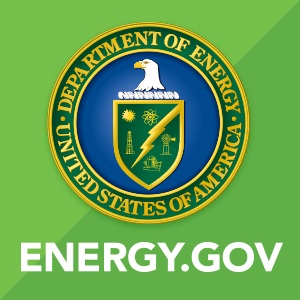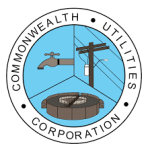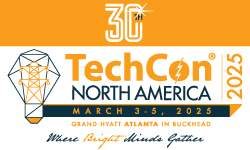Gulf Coast and Midwest Hydrogen Hubs will Create Tens of Thousands of High-Quality Jobs, Deliver New Economic Opportunities, and Reinforce America's Clean Manufacturing Boom
As part of President Biden's Investing in America agenda, the U.S. Department of Energy (DOE) today (Nov 20) announced up to $2.2 billion in award commitments for two Regional Clean Hydrogen Hubs (H2Hubs) that will help accelerate the commercial-scale deployment of low-cost, clean hydrogen a valuable energy product that can be produced with zero or near-zero carbon emissions. The two awardees Gulf Coast H2Hub and Midwest H2Hub are critical pillars of DOE's H2Hubs program, which was created by the Bipartisan Infrastructure Law to kickstart a national network of clean hydrogen producers, consumers, and connective infrastructure while supporting the production, storage, delivery, and end-use of clean hydrogen. Building a strong and equitable domestic clean hydrogen economy is a key component of President Biden and Vice President Harris' plan to strengthen America's economic competitiveness, create new good-paying, high-quality jobs, and slash harmful emissions that jeopardize public health and pollute local ecosystems.
"The Biden-Harris Administration has followed through on its promise to kickstart a new domestic hydrogen industry that can produce fuel from almost any energy resource in virtually every part of the country and that can power heavy duty vehicles, heat homes, and fertilize crops," said U.S. Secretary of Energy Jennifer M. Granholm. "Today's announcement marks a major milestone in DOE's Hydrogen Hubs program, signaling our deep commitment to strengthening America's energy security and boosting our economic and global competitiveness while also tackling the climate crisis."
As part of the H2Hubs program, DOE is committing up to $1.2 billion of federal cost share for the Gulf Coast Hydrogen Hub led by HyVelocity (HyV) and up to $1 billion of federal cost share for the Midwest Hydrogen Hub led by the Midwest Alliance for Clean Hydrogen LLC (MachH2). These awards follow three previously awarded H2Hubs, and together, they will help drive private sector investment in clean hydrogen, setting the nation on a course to hit critical long-term decarbonization objectives.
Clean hydrogen is a flexible energy carrier that can be produced from a diverse mix of domestic energy resources, including renewables, nuclear, and fossil resources with carbon capture. Its unique characteristics will allow the H2Hubs to substantially reduce harmful emissions from some of the most energy-intensive sectors of the economy, such as chemical and industrial processes and heavy-duty transportation, while creating new economic opportunities across the country. It could also be used as a form of long-duration energy storage to support the expansion of renewable power. By enabling the development of diverse, domestic energy pathways across multiple sectors of the economy, clean hydrogen will strengthen American energy independence and accelerate the American manufacturing boom.
- Gulf Coast Hydrogen Hub (HyVelocity Hub; Texas) By creating a balanced portfolio of producers and consumers, the Gulf Coast Hydrogen Hub plans to leverage the Gulf Coast region's abundant renewable energy and natural gas supply to drive down the cost of hydrogen a crucial piece to achieving market liftoff. Through its core projects, the Hub proposes to produce clean hydrogen from both water through electrolysis and from natural gas while utilizing carbon capture and storage. These proposed investments in clean hydrogen aim to catalyze regional decarbonization solutions and contribute to lifting off the U.S. national clean hydrogen network. This H2Hub is expected to create approximately 45,000 direct jobs over the project's lifetime. Learn more here.
- Midwest Hydrogen Hub (Midwest Alliance for Clean Hydrogen (MachH2); Illinois, Indiana, Iowa, Michigan) Located in a key U.S. industrial and transportation corridor, the Hub plans to leverage the region's diverse energy sources (including renewable wind energy, natural gas, and nuclear energy) to support the decarbonization of industries including steel and glass production, manufacturing, power generation, refining, and heavy-duty transportation across Illinois, Indiana, Iowa, and Michigan. The Midwest Hydrogen Hub anticipates creating approximately 12,000 direct jobs over the project's lifetime. Learn more here.
DOE's investment in the H2Hubs program is one of the largest investments in clean manufacturing and jobs in history. This transformative federal investment will be matched by recipients to leverage billions of dollars to strengthen local economies, create and maintain high-quality jobs, and position America as the global leader in emerging energy industries.
The seven selected H2Hubs are expected to collectively produce millions of metric tons of hydrogen annually, thereby getting us closer to reaching the 2030 U.S. production target and lowering emissions from hard-to-decarbonize industrial sectors that represent 30 percent of total U.S. carbon emissions. Together, they will also reduce tens of millions of metric tons of carbon dioxide (CO2) emissions from end-uses each year an amount roughly equivalent to combined annual emissions of millions gasoline-powered cars and create and retain tens of thousands of good-paying jobs across the country while supporting healthier communities.
Delivering Economic and Environmental Benefits to Communities Across America
As part of the President's commitments to invest in America's workforce, support high-quality American jobs, advance environmental and energy justice, and strengthen Tribal energy sovereignty, each H2Hub was required to develop and ultimately implement comprehensive community benefits commitments which will be informed by early and meaningful community and labor engagements in each region. DOE will co-host virtual community-level briefings for each awarded H2Hub to provide local communities with a forum to learn about and provide input on the selected projects.
DOE's Office of Clean Energy Demonstrations (OCED) manages the H2Hubs program and will provide project management oversight for the projects selected to produce clean hydrogen; demonstrate end uses; generate training opportunities and good-paying, high-quality jobs; reduce emissions and pollution; and ensure tangible benefits flow to local Hub communities. Through its phased approach to project management oversight, OCED will review and evaluate the Hub's progress, including toward community benefits, which impact OCED's decision to continue to provide federal funding and allow a project to progress to the next phase.
Learn more about how OCED, the U.S. National Clean Hydrogen Strategy and Roadmap, and the H2Hubs program are supporting the Biden-Harris Administration's all-of-government approach to address the climate crisis and deliver a clean and equitable energy future for every American.
Media Inquiries:
(202) 586-4940 or DOENews@hq.doe.gov














